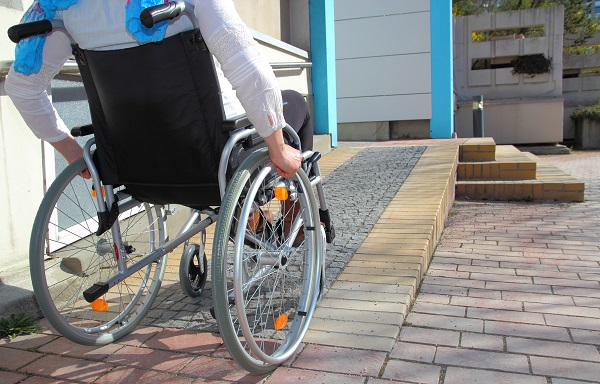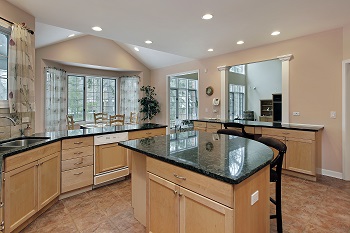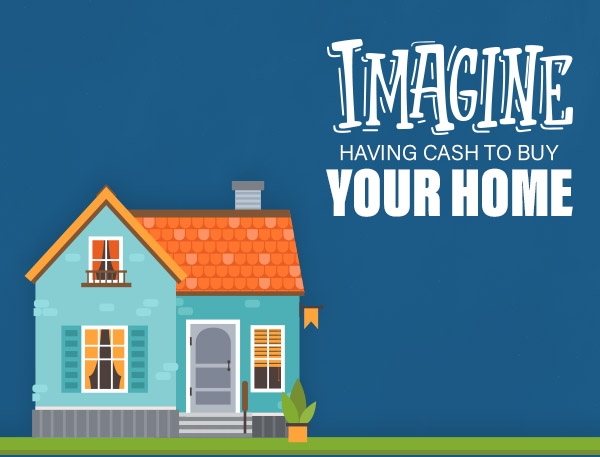Just imagine – you sell annuity payments for a large lump sum of cash and soon after, make a move that’ll change your life forever (we know, dramatic right?). You go back to school, proving to the world that you are one. smart. cookie. With the cash earned by selling your annuity payments, you could indeed tie up your scholastic loose ends.
Read moreInfo Center
6 Ways Selling Your Structured Settlement Makes You A Boss
Are you ready to be a boss? As in your own boss; someone who takes control of their future and starts their own business? If so, selling a structured settlement can provide the funds you need to make it over the initial hurdles all new businesses face.
Read moreIt’s Home Buying Time – 5 Things to Do Before Making an Offer
If you have a structured settlement in place – RIGHT ON. You’re in a perfect position to sell your structured settlement payments for a lump sum and use the cash to buy a new home. It’s the American dream, after all!
But let’s get serious for a minute. Selling your gradual payments is how you get the lump sum you need so you can be financially set to pursue your home-buying dreams!
Read morePaying Off the Debt Monster w/ a Structured Settlement Lump Sum

The money’s trickling in – but so are the bills! Being unable to get them paid is almost always a scary thought. But selling your structured settlement for a lump sum is an amazing way to keep the debt monster at bay.
4 Things You Need To Know About Your Credit Cards

We all have credit cards. We all use them. We think they can save us from anything. They’re our superheroes. Unfortunately, they’re not. Many of us don’t understand the terms and conditions of our cards. From fees to advances, here’s a look at things you should know before getting credit cards.
Cash Advances
A cash advance from your credit cards are an easy way to gain access to funds however, it’s only a quick fix to many financial problems. Credit card companies can charge you a fee plus interest for using a cash advance. This charge is immediate, meaning there isn’t a grace period to pay off the advance before it is charged. Regular purchases have a grace period in which you have time to pay back the amount you borrowed; however, interest starts to accrue the moment you take an advance. The fees depend on the dollar amount of the advance. Don’t forget that there is also a charge for using an ATM to get the cash advance. Fee after fee!
Late Payments or Non Payment
Making late payments on your cards are a bad idea. This not only gets you further into debt, it hurts your credit score. Each time you make a late payment, you accrue fees as well as a derogatory remark on your credit report. This makes it harder to obtain a loan for a car, house or any other major purchase.
Annual Fees and Interest Rates
Credit cards have annual fees and interest rates attached. These fees can be really high and when added to your balance, it may become too much to handle for some people already in financial stress. Carrying the balance from month to month along with the annual fees may not be the best decision. Interest rates vary from person to person. It all depends on the card and the person’s credit history. Make sure you read through and pick the best option before signing up for one.
Too Many Cards at the Same Time
Getting too many cards at the same time might not be the best idea. This gives you the temptation to max them out. If you’re not careful, you’ll end up reaching your limit a lot quicker than you thought you would. Credit cards are meant to help in times of an emergency. Others choose to rely on them. This is a common mistake made by many individuals. Try to find a card that has a low-interest rate. Keep your balances low and you’ll be fine!

Even if you’re careful with your cards, it’s easy to fall into debt. RSL Funding is here to help with the sale of your structured settlement or annuity. We’ve helped thousands with their debt relief. Call us today at web_phone to get your free quote for your structured settlement or annuity!
Read more
Using Your Settlement Lump Sum for an Adapted-Home Remodel

For someone who is disabled or elderly, an adapted-home means much more than simple convenience. It means safety and most importantly, independence. While adapted-home remodeling can be expensive, using your settlement lump sum from selling structured settlements or annuities can go a long way towards building a safe, welcoming, and independent living space.
Funding Your Adapted-Home Remodel
The price of your adapted-home remodel will vary based on the level of disability you are accommodating for and how accessible you want to make the home. On average, costs for remodeling for disability accommodation will range anywhere from $4,354 to $6,468; however, costs can be as low as $200 or as high as $20,252. The best way to ensure you have the funds to cover the remodeling, speak with an RSL Funding representative about selling your structured settlement or annuity and using your settlement lump sum to fund your adapted-home remodel. When it comes to independence and peace of mind, there is no halfway.
In addition to your settlement lump sum from selling structured settlements or annuities, there are also a variety of federal and charitable sources that can help with the costs. Check out Disability.gov for a list of government and charitable organizations that can help with the cost of an adapted-home remodel. Another great resource is Expertise.com, which provides a list of federal resources available to veterans, seniors, and people with disabilities.
 Meaningful Renovations
Meaningful Renovations
If you or someone you love requires an adapted-home remodel, here are some of the best ways you can use your settlement lump sum to make a home more accessible and easily maneuverable:
Entrances
- The most crucial remodels for entranceways are extending frames (ideally 36” wide) and installing ramps
- If you have the funds, consider adding handrails, a non-slip surface, and cover to your ramps
- If a ramp is impractical or simply impossible to install, consider installing a vertical lift
Floors
- Tile and hardwood are ideal, avoid carpet and rugs if possible as these types of flooring can make maneuvering in a wheelchair prohibitive
- To make thresholds more accommodating, install rubber ramps
Doorways
- Doorways are often forgotten in considering an adapted-home remodel, but can be difficult to navigate for someone less-abled; ensuring all doorways are wide enough for a wheelchair to maneuver through is a huge move towards safety, comfort, and independence
- To widen doorways, frames and doors can be removed or door openings can be reversed to allow for better mobility
Stairs
- To provide full accessibility to a home with stairs, a vertical platform lift or stairway lift will need to be installed at each set of stairs
- For stairs with fewer than five rungs, a ramp may be a more economical option
Doorknobs and Handles
- For a truly adapted-home, ensure all doorknobs and levers are at an accessible height
- A more functional option is to install automatic door openers throughout the home
- For areas requiring privacy, such as a bedroom or bathroom, if lowering the doorknob is not feasible, consider removing the door altogether and replacing with a privacy curtain that is easily manipulated
 Kitchens and Bathrooms
Kitchens and Bathrooms
- For areas such as kitchens and bathrooms, where access to appliances is key for independent living, lower sinks and countertops to an accessible level and ensure all faucets and levers are easily reached and powered by lever-handled valves or are touch-operated
- Install grab bars around areas that will require movement to and from a wheelchair, such as toilets and showers
- For a fully accessible bathroom, consider replacing showers with a tub and vacuum-sealed door or a shower that allows for walk-in entry; also, ensure all showerheads are handheld
- For a fully accessible kitchen, install shallow-basined sinks and insulate all pipes below sinks to prevent scalding
Learning to live with a disability, or a loved one who has become disabled, can be challenging, but it doesn’t have to mean an end to comfort and independence. There are many ways you can adapt your home to better suit the needs of someone with a disability in a cost-effective manner. While small changes can be made on a budget, a substantial adapted-home remodel is necessary to truly provide safety and independence.
To find out how you can sell your structured settlement or annuity and use your settlement lump sum to fund an adapted-home remodel, call RSL Funding today at web_phone or request a quote online.
Read moreSelling Structured Settlements and Annuities: A Way Out of Crisis

If you are receiving periodic payments stemming from a lawsuit you have won, selling structured settlements could be the helping hand you need to rise above crisis and create better opportunities for you and your family. This holds especially true for anyone who has had to combat financial hardships from a breakdown in city or town services.
Read moreWhat the Best Structured Settlement Payout Companies Have in Common

There are certain characteristics that the best structured settlement payout companies have in common. Before choosing a structured settlement payout company, make sure you carefully consider the following list of attributes they share.
Read morePre Settlement Funding Woes and How to Avoid Them

Waiting for a settlement while your case works its way through the court system can seem like an eternity, especially if your bills continue to pile up while you wait. At the time, pre settlement funding may seem like a viable option, but it has many disadvantages that many pre settlement sellers aren’t aware of until it’s too late.
Read moreMoving? A Bigger Structured Settlement Buyout Is Key

Are you anticipating a big move in the future? While moving to a new place – whether across the street or across the country – is exciting, it is also a huge expense having many unexpected costs that pop up along the way. Pursuing a structured settlement buyout before your big move can get you the cash you need to ensure your move is as successful and easy as possible, with plenty of financial cushion. If you’re currently receiving payments, a lump sum might be the way to go.
Read moreHow Can I Avoid Bankruptcy?

Are your bills piling up? Have things gotten so bad that you can’t see foresee a time where you will ever be debt-free? You might be at a loss, asking yourself “How can I avoid bankruptcy?” Luckily, there’s hope if you’re currently receiving payments from a structured settlement or annuity.
Read moreSell Your Structured Settlement and Show Credit Card Debt Who’s Boss

Credit card debt can sneak up on you, and quickly. Unexpected expenses such as emergency medical treatment, a broken down car, or even small purchases that add up can all wreak havoc on your credit card debt and credit score. If you sell your structured settlement, you can alleviate credit card debt, get your life back, and start on your way to rebuilding your credit score.
Read moreSell Annuity Payments and Save Money: Your Winter To-Do List!

Winter is almost here and along with it comes cold weather and the holidays – two things that can quickly break a budget. While winter can be challenging financially, you can ease the burden if you sell annuity payments for a much needed cash boost right when you need it and follow the tips outlined in this article for saving money this winter.
Read moreJG Wentworth’s Shareholders Want Their Money, and They Want It Now

Structured settlement and annuity buyer JG Wentworth, creator of the ubiquitous slogan “It’s my money and I want it now,” finds itself faced with a declining stock price following duplicitous market practices that have caused customers to lose faith in the once industry-leading settlement buying company.
Read morePay IRS Debt with a Lump Sum. Be Your Own Superhero!

If you’re one of the millions of Americans struggling with tax debt, we have some great news for you: structured settlements are awarded tax-free and the lump sum you receive can be used to pay IRS debt! You can be your own superhero and rescue yourself from debt once and for all.
RSL Funding, LLC | 510 Bering Dr., Suite 510 | Houston, Texas 77057-1457 | CONTACT US








